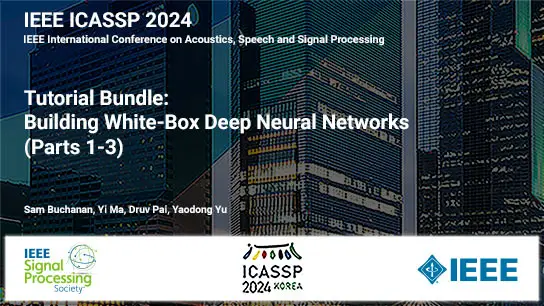DEEP SEQUENTIAL BEAMFORMER LEARNING FOR MULTIPATH CHANNELS IN MMWAVE COMMUNICATION SYSTEMS
Aditya Sant, Afshin Abdi, Joseph Soriaga
-
Members: FreeSPS
IEEE Members: $11.00
Non-members: $15.00Length: 00:14:31
08 May 2022
The highly directional nature of mmWave channels results in a mutlipath incoming signal, often with varying power levels. To exploit the complete diversity of this channel, beamformer design should incorporate this multipath. This increases pilot overhead for initial access. However, low latency mmWave signalling protocols require minimal pilot transmission. Additionally, practical system implementations of beamformers use low-complexity phase-shifter (PS) beamformers. Balancing performance, latency and hardware constraints, active learning has proven to be an extremely effective strategy for initial channel access. However, modern active learning algorithms are tailored to line-of-sight (LOS) angular estimation and tracking. We address multipath beamformer design via deep learning, which is increasingly used for channel estimation and end-to-end communication. We develop two novel deep neural networks (DNN) for multipath beamformer learning: (i) Deep Unfolded Beamformer Learning and (ii) Deep Recurrent Beamformer Learning. Our approach improves on active learning for LOS paths by utilizing multipath diversity for increased reference signal received power (RSRP).



